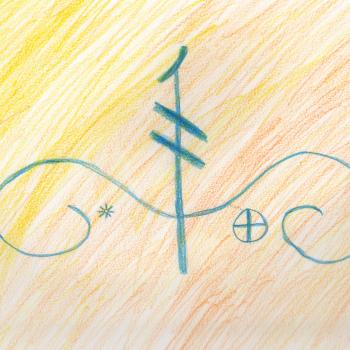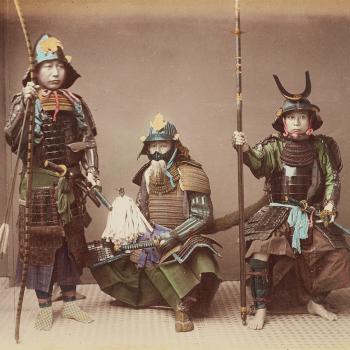It’s the close of the festival season, and I’m back at Wisteria for Autumn Fires (It’s cold but the company is wonderful.) Perhaps its time to finally finish writing about the lessons I took home from here after Starwood three months ago. I suppose it’s taken me that long to digest them even partly.
I am a long way from famous. But there are a few places and contexts where I’m known a bit. One of them is the Starwood festival. For those not familiar, Starwood is a prominent Pagan/Magical event — Timothy Leary and Robert Anton Wilson both spoke there, which gives me another thing in common with those gentlemen. I’ve been a regular presenter there for over a decade.
I’m well-known enough there, as I biked up and down the main street of the Wistera campground, that people I didn’t recognize would wave at me and shout “Hi Tom!” as I passed by. Now, it’s also true that I am a little face-blind, that I sometimes do that thing where I talk to someone for half an hour and then not recognize them by sight the next day, so a “people I don’t recognize” standard is a little loose. But I’m going to step out on a limb here and say that a substantial number of people there know who I am, are happy to see me, and like what I bring.
To be seen as one of the cool kids (even in a limited context) is a thing I’m still puzzling out. I am, inside, still that elementary-school kid who was a favorite target of the neighborhood bullies, whom no one wanted to sit with at lunch.
And one way I’m puzzling it out is through the archetype of the King.
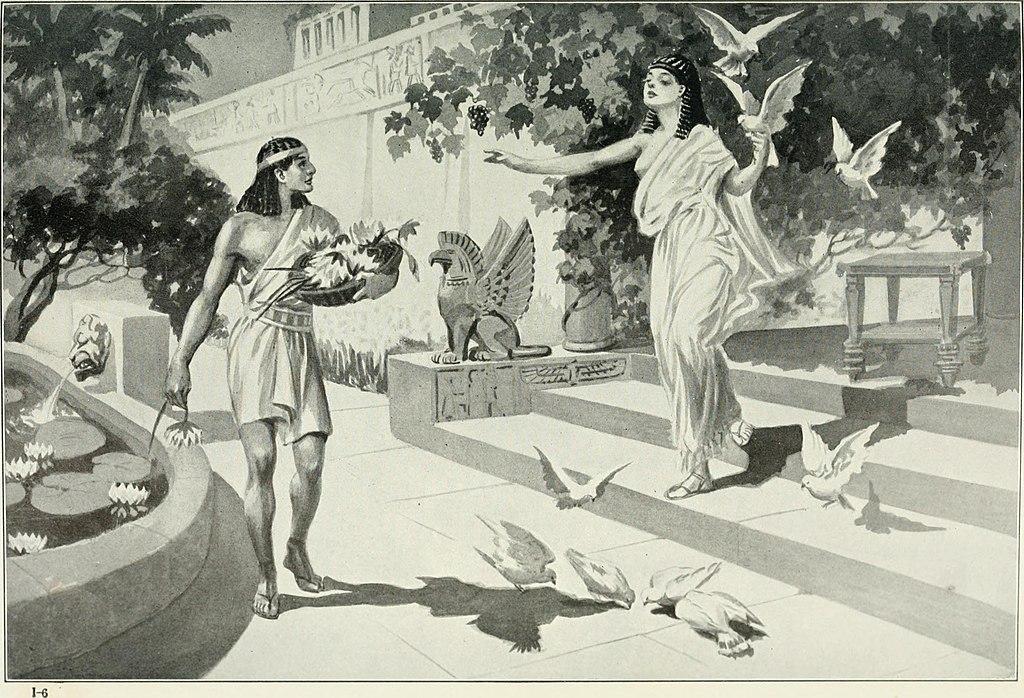
There’s a book about archetypes of the masculine that I’ve been recommending for years now, King, Warrior, Magician, Lover by Robert Moore and Douglas Gillette.
My usual cautionary notes: my reflections on gender are not meant to be exclusive or normative. This should be taken in the context of “here are some thoughts that have helped me figure myself out”, not “here is what you must do to be a man” or “this is reserved to men, women stay over there.” And it’s worth noting that I’ve been working with those basic four in a slightly different direction than Moore and Gillete, developing a model that also includes the Captain, the Trickster, the Healer, the Preacher, and the Wild Man. I’ll do a series of posts about that sometime.
The Warrior is the energy of action, of pursuing a goal and accomplishing a mission. The Magician is the master of hidden knowledge: the student studying in isolation, the artist or craftsman in his workshop. The Lover is the energy of passion, emotion, connection and contemplation: love in the sexual and romantic sense, yes, but also love of life, joy de vivre.
I feel like I’ve been on decent terms with those three archetypes. But the King? Hell, I’m an anarchist. I don’t want to rule anyone.
But that’s not what the King, the archetypal Sacred King, is about. It took me a while to understand that. The sort of King we are speaking of here truly “reigns but does not rule”; he does not command, he is not a conqueror. Instead the King is the conduit of blessings for his people.
Kingship is a central theme of Tolkein’s The Lord of the Rings — the third volume is, after all, The Return Of The King. Aragorn is a war chief, yes, and the conflation of warriorship with kingship may be a fundamental problem of European culture. But it is not his Warrior aspect that causes him to be recognized as the king. It is his ability to heal. As the wise woman Ioreth states, “it is said in old lore: The hands of the king are the hands of a healer. And so the rightful king could ever be known.”*
So this is not necessarily a physical healing — Aragorn is not setting broken bones and suturing wounds, he is healing the Black Shadow, the blackness of the soul that the Nazgûl had cast upon the land. The king is a conduit for blessings: the Chinese character for “king”, 王, shows the king as the central line connecting heaven, humanity, and earth.
The King is the man whom others want to be with, just because his company brings joy. In our modern culture, celebrity is a distorted reflection of this sort of kingship. It’s no wonder that we’ve had so many “royal” entertainers, from Elvis the King, to Duke Ellington, Count Basie, Prince — subverted, perhaps, by Queen.
It’s been my pleasure to spend time in the company of several such men at Starwood and other festivals. Men who share their magic, who embody hospitality and grace.
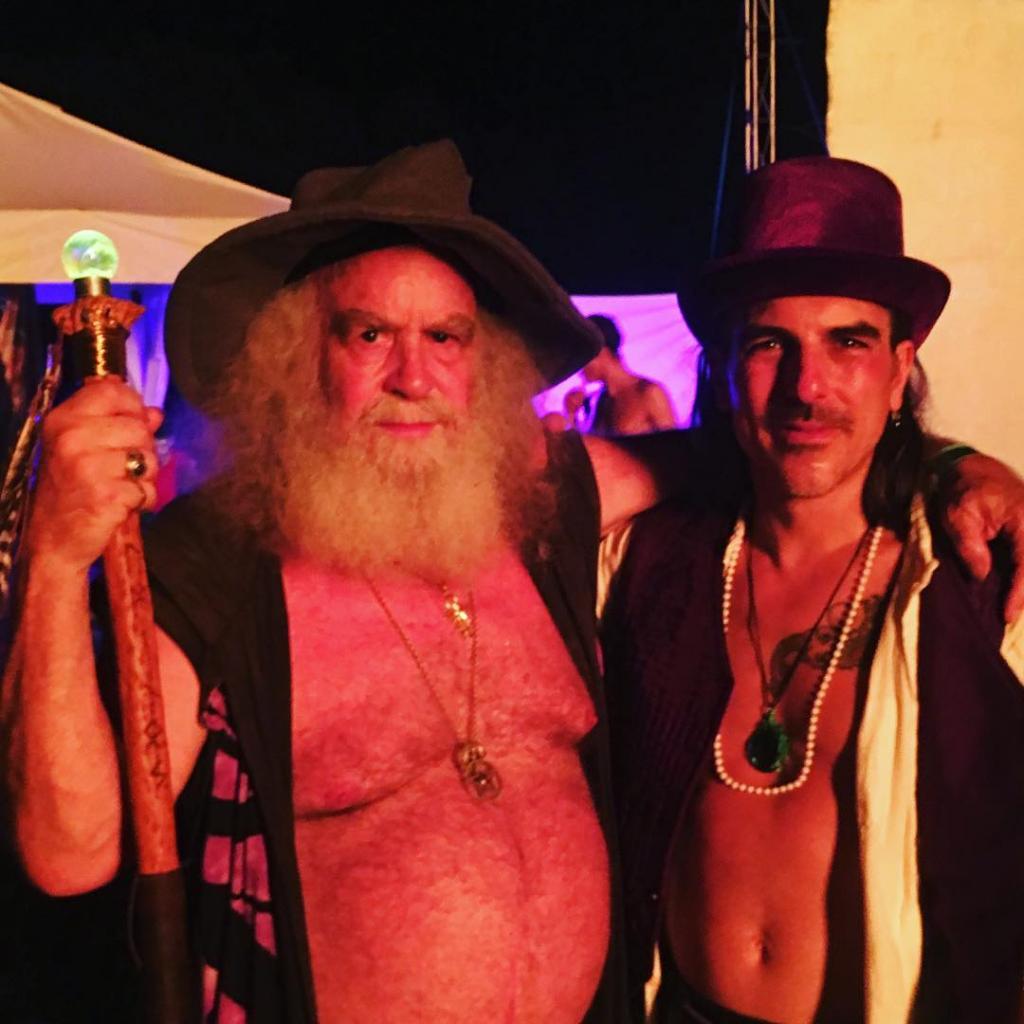
Back in June, before Starwood, I sat down with our friend and blogging neighbor Thorn Mooney at FSG for a video blog, and one of the things we talked about was going to Starwood. We mentioned one of our favorite Starwood regulars, Oberon Zell, one of the founding fathers of the Neopagan movement. See how we both go fanboy/girl when we talk about him? That’s because he does the King very well.
I did get to sit with with Oberon and big-name Pagan Ian Corrigan for a bit at Starwood. Afterwards I remembered the scolding a high-school teacher gave us when none of us expressed any interest in growing up to be United States Sentors: “You’d all rather go drink beer in a field!” Looking at the company I’d be in in the Senate, versus sitting in a field at Wisteria drinking beer with men like Oberon and Ian…yes, I think it worked out for the best.
I certainly cannot compare myself with these men. But as I move into a more visible role in the Pagan community, I will look to how they manifest the King.
This was also the first Starwood for me since my father died, putting me in a new relationship with my ancestors. (A relevant topic as we move toward Samhain.) And the message that kept popping up for me at Starwood was “do more ancestor work”.
On the one hand, “ancestor work” wouldn’t seem to make a lot of sense for a naturalistic Pagan who does believe in any sort of non-corporeal spirit that survives death. But just as the existence of the gods is a question that can only be answered in context, so is the question of the survival of our ancestors. A classification grid or reality tunnel in which certain phenomena are seen as being part of the continuing karma, cause-and-effect, of our ancestors, has its uses.
And not all of my ancestors were great people. But I found a powerful idea at Starwood this year: perhaps our misbehaving ancestors have work to do to make up for their misdeeds. Imagine yourself waking up after that night where you had too much to drink and repenting your actions, wishing to make amends, to redeem yourself…perhaps now my racist homophobic grandfather (or his continuing karma) has in a sense woken up to a fuller understanding, and is ready to do better.
I recently renovated the room in my house where I practice acupressure and massage. (I was very pleased to hire my oldest friend in the world, Mike Gurklis, to strip the wallpaper and repaint — if you’re near the York-Baltimore corridor, see Gurklis Painting for your home painting needs.) With the room redone, I moved my spirit/deity altar into one corner of it, and on the recent Equinox I set up an ancestor shine, with some old family photos (some found on Ancestry.com, some sent to me by my cousin — don’t forget these resources for family history) and the guitar that once belonged to my father, and which my uncle learned on when Dad went off to Vietnam.
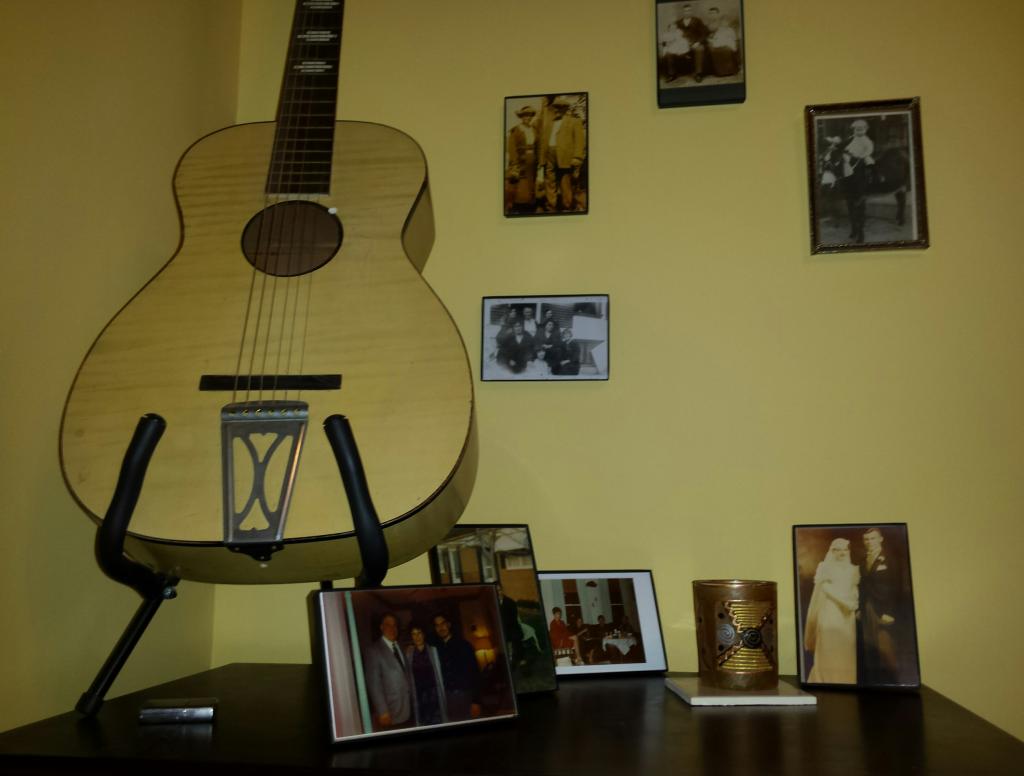 I’ve found it quite powerful these past few weeks to do my healing work in the presence of this ancestor energy. Samhain would be a great time to set up such a shrine for yourself. It doesn’t have to be anything explicit or obvious to visitors, just a corner with family photos and your intent will do the job.
I’ve found it quite powerful these past few weeks to do my healing work in the presence of this ancestor energy. Samhain would be a great time to set up such a shrine for yourself. It doesn’t have to be anything explicit or obvious to visitors, just a corner with family photos and your intent will do the job.
*Toklien, J.R.R. The Lord of the Rings, Part Three: The Return of the King. New York: Ballantine Books, 1965. p166
† Chance, Jane. The Lord of the Rings: The Mythology of Power. New York City: Twyane Publishers, 1992, 104; quoted in Calco, Lauren, “The Hands of a Healer:” J.R.R. Tolkien’s Understanding of Kingship, http://ashbrook.org/wp-content/uploads/2012/06/2006-Calco-Hands-of-a-Healer-PDF.pdf
Have I mentioned my books lately? It’s not to early to start your Yule shopping, and Why Buddha Touched the Earth or What Does It Mean For The Gods to Exist? make great gifts for the Zen Pagan on your list.








